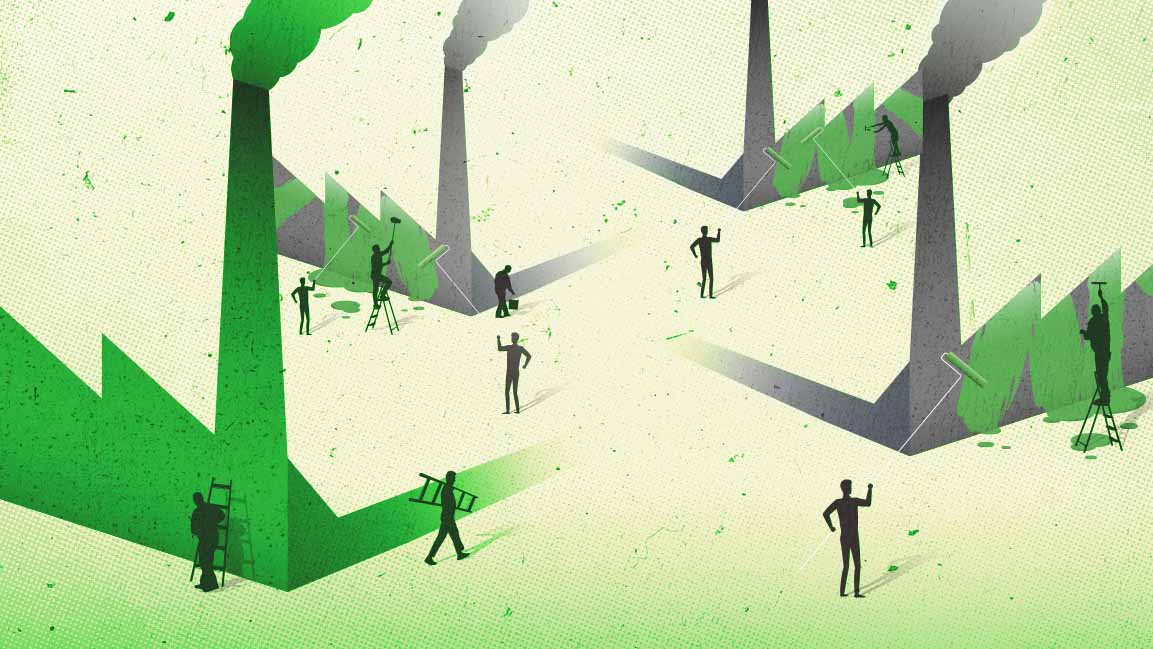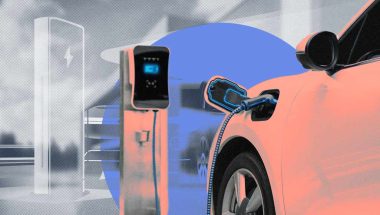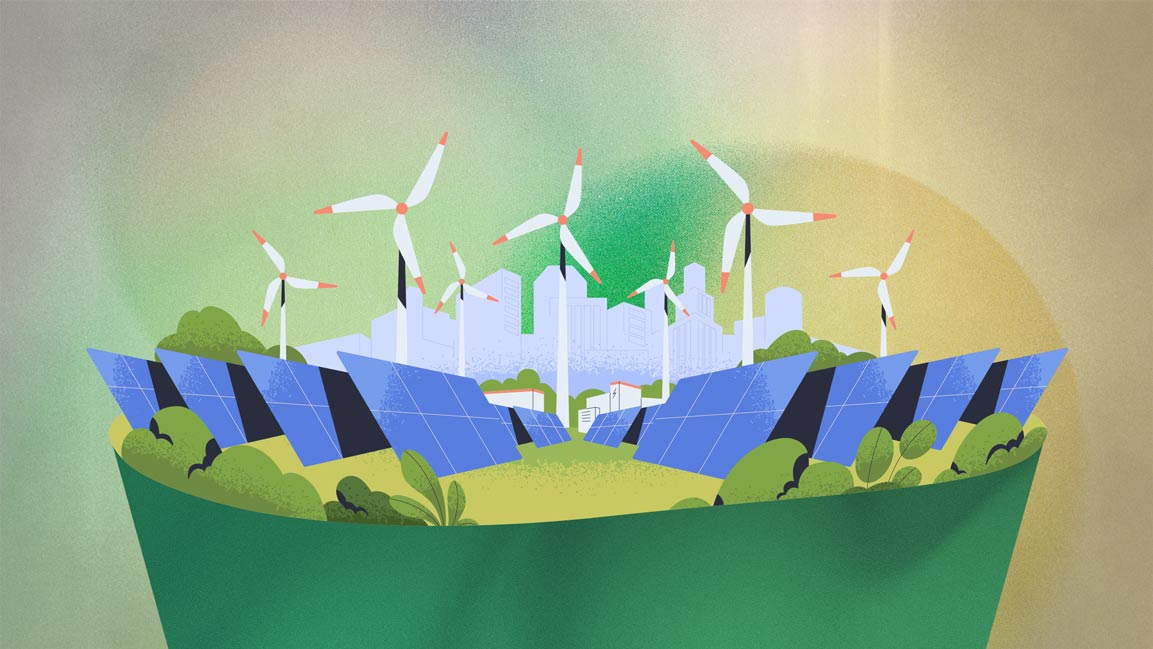- | 9:00 am
11 positive ‘tipping points’ that can help combat climate doom
Recent reports point to promising technical solutions, but they miss the role of politics in decarbonizing the economy.

When it comes to climate change, tipping points are typically a bad thing.
They refer to a threshold at which irreversible, self-perpetuating, and catastrophic environmental changes—often referred to as feedback loops—will ensue. For example, in the Amazon, deforestation threatens to set off a chain of processes in which the rainforest emits more carbon than it’s able to absorb.
But recent reports, including one presented at Davos earlier this year, turn the concept on its head, touting positive climate tipping points as thresholds that will help transition the economy away from fossil fuels.
“We’re hoping to help draw people’s attention to, ‘if we can get to this tipping point, we can help move this sector’ . . . and it will make our jobs in the other sectors easier,” says Mark Meldrum, a coauthor of The Breakthrough Effect, released in January.
The report, from Systemiq, identified three areas that have the potential to create ripple effects in other industries. First, widespread adoption of passenger EVs, which could help drive down the cost of battery production and would, in turn, make it easier and more cost-effective to store wind and solar power. Second, “green” ammonia fertilizer, produced using electric currents to split hydrogen from water molecules, which could drive down the cost of hydrogen production for fuel. (This would replace the more common practice, which releases significant amounts of carbon dioxide as a byproduct of breaking apart molecules of natural gas.) And third, adopting plant-based proteins in global human diets, which could free up 7% to 15% of agricultural land, leading to less deforestation and greater biodiversity.
“These [tipping points] are really anchored on the back of common assets,” Meldrum says, adding that the sectors he and his colleagues focused on aren’t necessarily the fastest or easiest to transition, but the sectors where “we’re going to get the biggest bang for our buck.”
The Breakthrough Effect is just the latest in a string of reports on positive tipping points. A 2020 report by the Potsdam Institute for Climate Impact Research found that reallocating fossil-fuel subsidies toward renewables and building carbon-neutral cities could lead to positive climate tipping points. A 2018 study pointed to making a full switch to renewable power worldwide and building a circular economy as ways to do the same.
There are tipping points within our own homes, too, says Steven Pantano, head of research at Rewiring America, a nonprofit focused on building electrification.
Buildings account for around 40% of global emissions. By zeroing in on just four things—HVAC systems, water heaters, stoves, and clothes dryers, we can make dramatic gains. “These are accessible ways that people can make changes in their own lives,” Pantano says.
For example, reducing upfront costs for heat pump installation as they compete with gas boilers could cause ripple effects across other energy-intensive parts of the home by changing social norms and sparking consumer awareness.
“Most people don’t think about changing the infrastructure of their house,” he says. “As soon as someone sort of experiences the benefits of a really well-installed heat pump, which makes their home more comfortable and costs them a lot less, then they can start to tie that to rooftop solar, or they get an electric vehicle.”
And that consumer behavior is contagious. Several studies have shown that people are more likely to install solar panels if their neighbors already have them. The same goes for purchasing electric vehicles and cutting out meat.
Incentives like the tax credits introduced by the historic Inflation Reduction Act will push consumers and businesses closer to these tipping points. (Rewiring America’s IRA Savings Calculator makes it easy to break down exactly which tax credit your household might be eligible for if you invest in appliances like heat pumps or electric stoves.)
Focus on solutions and so-called positive tipping points can help combat climate doom. But if there is anything reports like The Breakthrough Effect miss, Pantano says, it’s the role of politics in pushing economies toward (or keeping them away from) these tipping points. “If you really start to think about how much money is invested in maintaining the status quo around fossil fuels, you start to uncover all kinds of interesting things,” he says.
In Ohio, one utility spent millions to secure bailouts for nuclear and coal plants. In Texas and Georgia, utilities have supported bills that would prevent municipalities from passing gas bans.
“Incumbent sectors, including the oil, coal, and gas extractive industries; pipeline operators; petrochemical manufacturers; and gas and electric utilities, all have accrued massive political power,” says David Pomerantz, executive director of the Energy and Policy Institute. “And they are using that influence to block or slow the growth of many of these climate solutions.”
In other words, technical tipping points don’t really matter without political will.
But when political will is present, the incentives that authors like Meldrum believe are necessary to transition the global economy can have their intended effect.
Last year, California became the first state to ban the sale of new gas-powered vehicles by 2035—something that might have once been unthinkable. Washington State, Massachusetts, New York, Oregon, and Vermont are expected to adopt similar bans, which would make accomplishing the Systemiq report’s first tipping cascade that much easier.
Meldrum notes that political incentives must be maneuvered to push the market toward the tipping points he outlines. “So, regulations etcetera to support that solutions come forward as fast as possible,” he says.
“Before the tipping point, you didn’t even have something that could compete,” he continues. “Now you’ve got a competitor, which is just as good, if not better, than the thing that we’re trying to beat.”
This article originally appeared in Nexus Media News.







































